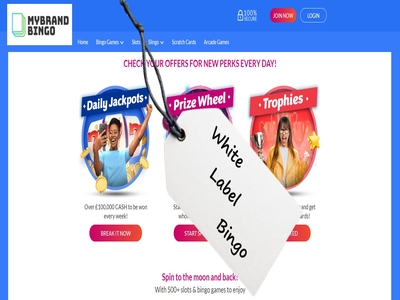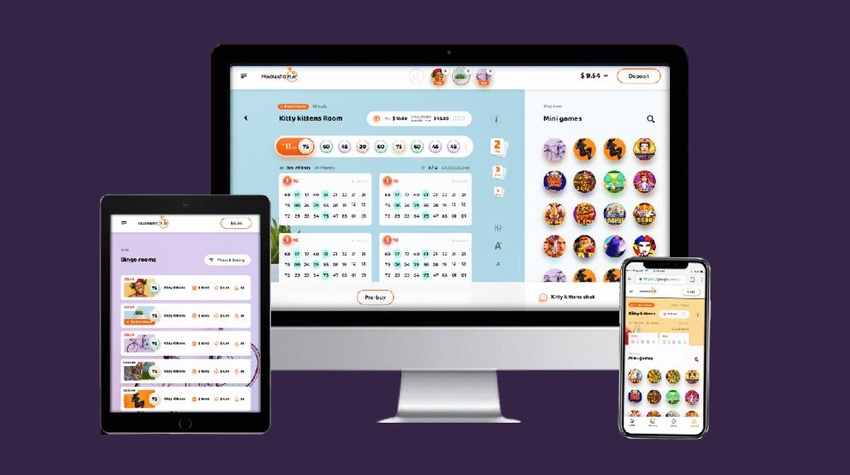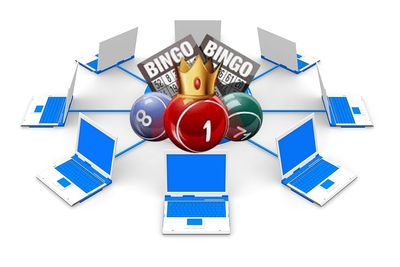 The more seasoned online players might have heard the term white label before, some of you might even have a pretty good idea of what it means, but for the more casual player or those that are new to online bingo, it might be a completely alien concept.
The more seasoned online players might have heard the term white label before, some of you might even have a pretty good idea of what it means, but for the more casual player or those that are new to online bingo, it might be a completely alien concept.
What has a label got to do with bingo, regardless of its colour?
What a bingo white label is and why they exist is actually pretty easy to understand, and it’s worth getting your head around because playing with one can have an impact on your online bingo experience.
Everything from the games that are available to the payment options and the terms that you play under is impacted by this.
Now the majority of online bingo players happily go through life never really knowing what a bingo white label is, so it’s not essential reading, but having that knowledge in your back pocket can definitely be beneficial and help you make smarter choices, so why wouldn’t you want to know about it?
I promise it’s not too technical, so grab a brew and scroll on down, and I will explain it all in a few minutes.
Bingo White Labels Explained

A bingo white label is simply a bingo brand that runs on a bingo platform designed and operated by another company.
The one important distinction it is important to understand here, is the difference between the brand, and the white label provider:
| Brand | White Label |
|---|---|
| Responsible for marketing their site and attracting players. Pays to use the white label’s services. | Creates the whole framework. Builds the bingo platform, runs the games, manages payments, provides the license. |
White label providers can also be known as bingo networks, which is probably a simpler way of saying it for most people.
The white label provider will have multiple other brands essentially ‘renting’ their bingo platform as well, and perhaps even a few brands they themselves own, so you end up with lots of different bingo brands all using the same bingo software or network.
This can mean that the websites all look very very similar to each other apart from the branding; it’s like they all bought their outfit from the same shop but chose different colours.
This is because all the white label provider does is offer one or two cookie cutter styling options before adding the specific branding.
The brand can make a few more personalised choices though, depending on the white label provider they are working with.
They might be able to tinker with:
- Site specific promotions
- Which side game developers they use
- Any bonuses linked to specific games
- Colour scheme/layout
- RTP of slot games (potentially)
Even these tweaks will come with pretty severe limitations though; it’s like a menu that only sells steak and chips – you can ask for your steak medium rare, add peppercorn sauce, and request fries rather than chips, but you’re still getting steak and chips at the end of the day.
Bingo isn’t the only industry this sort of thing happens in.
Online casinos and sportsbooks can be run as white labels too, but even outside of the gambling industry you have hundreds of physical products that are white labels; yoga mats, reuseable water bottles, vitamin pills – all sorts.
There aren’t hundreds of yoga mat brands all with their own production line; they all buy from the same factory in China which mass produces thousands of the same yoga mats then brands them according to the requirements of each company.
Even car companies do it in a way; they make two almost identical cars in the same factory, then give one of them a few tweaks and stick a different badge on it and hey presto, two different car brands.
It’s not exactly the same thing but the concept is widespread.
So anyway, that’s white labels for ya.
Sharing Players and Prizes
 One of the key things about a bingo white label, is that they pool their brands to create busier bingo rooms and bigger prizes.
One of the key things about a bingo white label, is that they pool their brands to create busier bingo rooms and bigger prizes.
This is why it is a network – a network of bingo sites all offering the same games and pooling their player base to create a more attractive product for the user.
For you as the player, this means you can be playing the exact same game of bingo as your friend, even chatting to them in the chat box, despite being logged into two completely different bingo websites.
Obviously, when it comes to prizes in bingo the more people who play the bigger the prize is going to be, so this works wonderfully well for everyone’s benefit if big payouts is what you want to play for. It’s why they can offer these progressive jackpots in games too, you know, where someone can win thousands if they fill their card inside a certain number of calls.
Rather than 10 tiny bingo sites with a smattering of players each, all playing in empty rooms for a few pounds a game, you have 10 tiny bingo sites able to offer much bigger prizes in much more enjoyable games because they have banded together.
Why Do Companies Use Bingo White Labels?

A lot of the time, the phrase ‘turn key solution’ is used to describe these white label bingo offerings, and for good reason.
For someone who wants to set up a new bingo brand from scratch, there would be ginormous set up costs without using a white label.
It would cost a bomb to create their own website, hire enough staff to run it, process payments, market the site, run customer support, negotiate deals with game developers, get a gambling license etc.
Even if you did all that, you would need to attract enough players to your single site to fill your bingo rooms, because if you didn’t no one would come back and your business would fail.
A white label provider has already set all of this up, and for a much smaller fee they will let the brand use it all with their own branding on. Really then, it’s the only way a brand without masses of financial backing can get off the ground – they pay their money, ‘turn the key’, and their business starts up.
Tombola were one notable exception who for a very long time ran their own site – they were bought out by Flutter in 2021 for this very reason – but brands like that are almost non-existent now.
Other benefits include a host of backroom analytics and other useful information on how your business is doing.
The brand can log in and track how many sign-ups they have had, how much people are spending and what they are spending it on, which offers and promotions are the most popular, etc. It goes very deep and offers tons of insight into how the website is performing, which makes it easier for the brand to run their business effectively.
This on its own is a massive incentive to use a white label provider.
White Label Sites from the Bingo Player’s Perspective

Now that you know all this, you might be wondering what to do with the information?
Well, it might make you a little more wary of who you choose to play with for one thing.
One potential issue with white label brands is that they can pop up and then close again inside a few short years and sometimes even less, which could be annoying for the player.
This happens precisely because it is so cheap to set one up, and with that in mind, knowing what a white label brand looks like might help you keep away from them until they are more established if this is something that would bother you.
A brand that has been around for a long time inspires more confidence than one that is only 6 months old.
The other issue is that all the sites end up looking the same, which can get a bit stale. There are quite a lot of bingo networks, but it’s not unreasonable to suggest that in the UK a small handful corner the market.
This means that, although there are hundreds of different bingo sites out there, they are mostly all operating on just 4 or 5 different bingo networks. So for players, that essentially boils down to 5 different bingo sites, since each network offers the same games (bingo and side games) on all the sites linked to them.
That said, recognising the available games from one site to another can tell you exactly which white label provider a brand is using, so if you want a new bingo site but liked the games available on your old one, you know that if you see them again somewhere else then that site is on the same network, so you can join up and basically play on the same site via a different brand.
You might do this to take advantage of new customer offers, for example, or if your current site’s marketing approach is irritating.
It is trickier to make white label brands work these days, as changing gambling regulations have increased taxes and made marketing more difficult for the brand, and also put more onus on the white label provider to make sure the brand is behaving correctly (they are operating on the white labels gambling license after all).
The impact of this is twofold;
- There are fewer white label sites out there than there used to be.
- The landscape for players is actually safer and more secure, because it’s much more difficult for rogue operators to slip through.
White label operators are more selective about who they will work with, since they can be punished if a brand breaks license conditions and can end up baring the financial brunt if one of their brands goes under; but it’s also more difficult to make a white label bingo site profitable, it takes more work, so it’s a less attractive proposition for wannabe bingo brands than it used to be.
A few networks have stopped working with 3rd parties all together, instead just operating their own brands on their network, while others have decided they will only work with 3rd party brands who have their own gambling license, meaning the white label provider takes less responsibility for the brand’s actions.
Finally, smaller white label brands are less likely to have the best offers and promotions as they simply don’t have the financial clout to pay for them.
There will still be promotions, but they might not carry the same value as big name brands or those owned by the white label provider.
